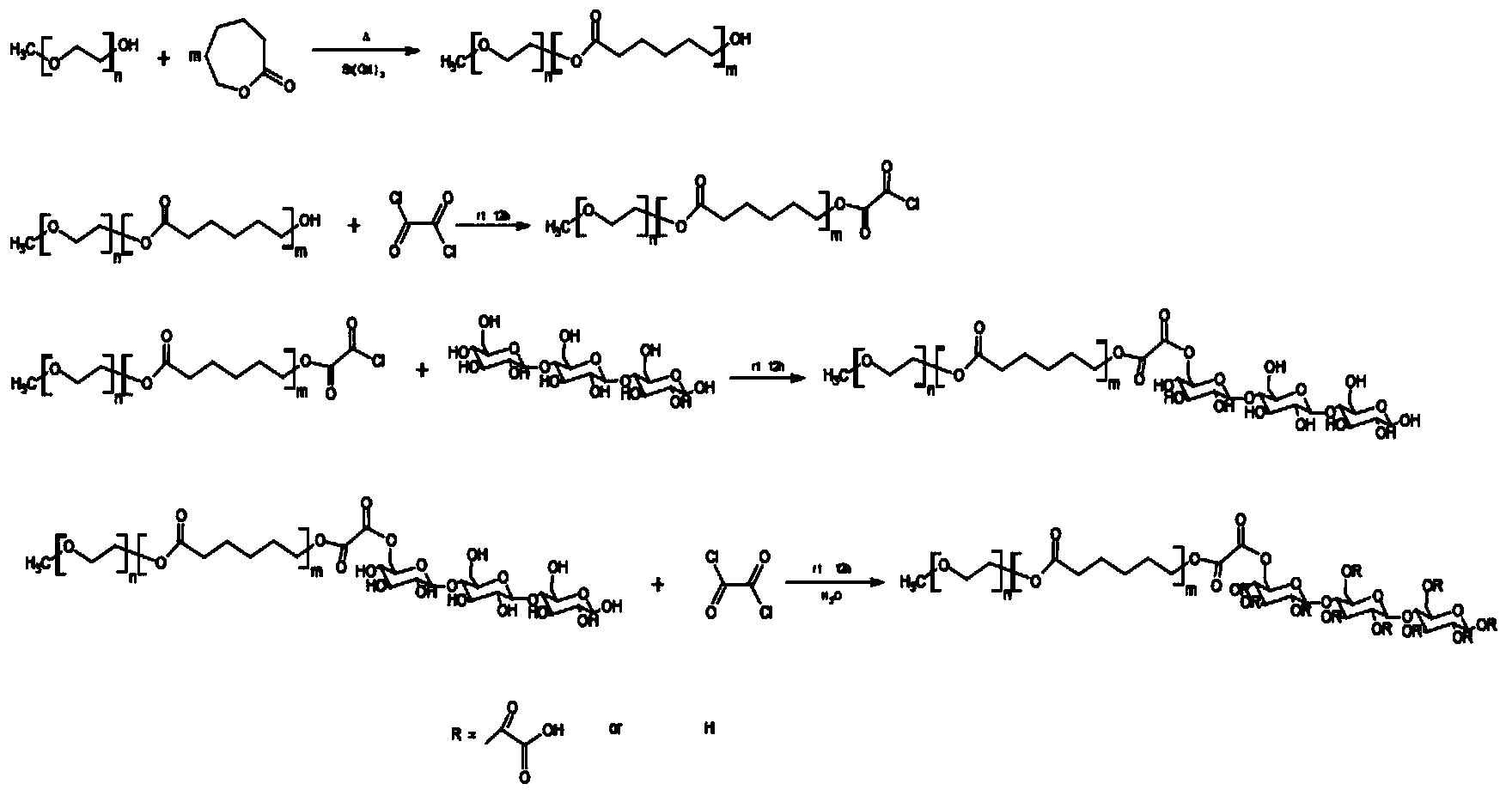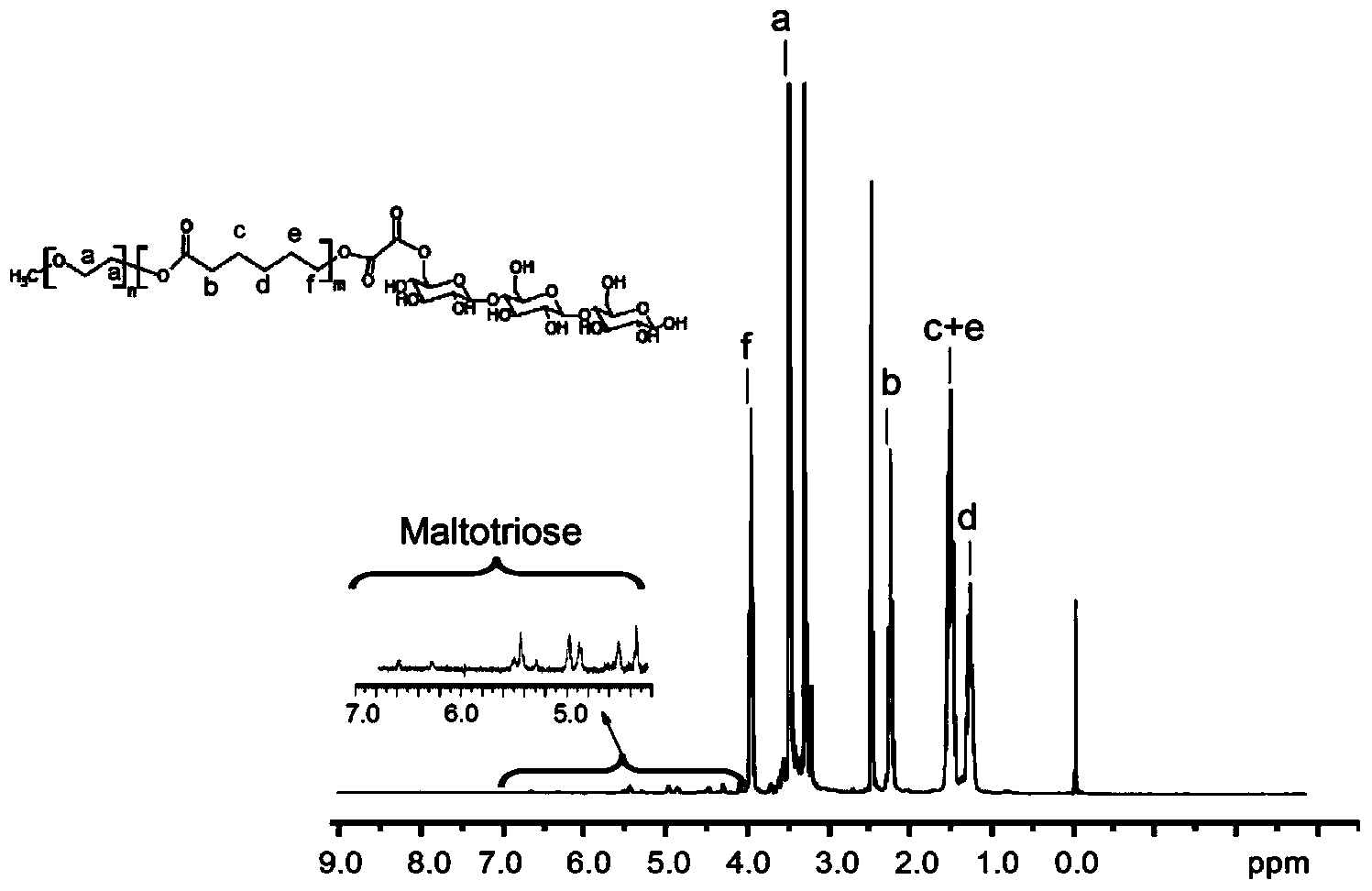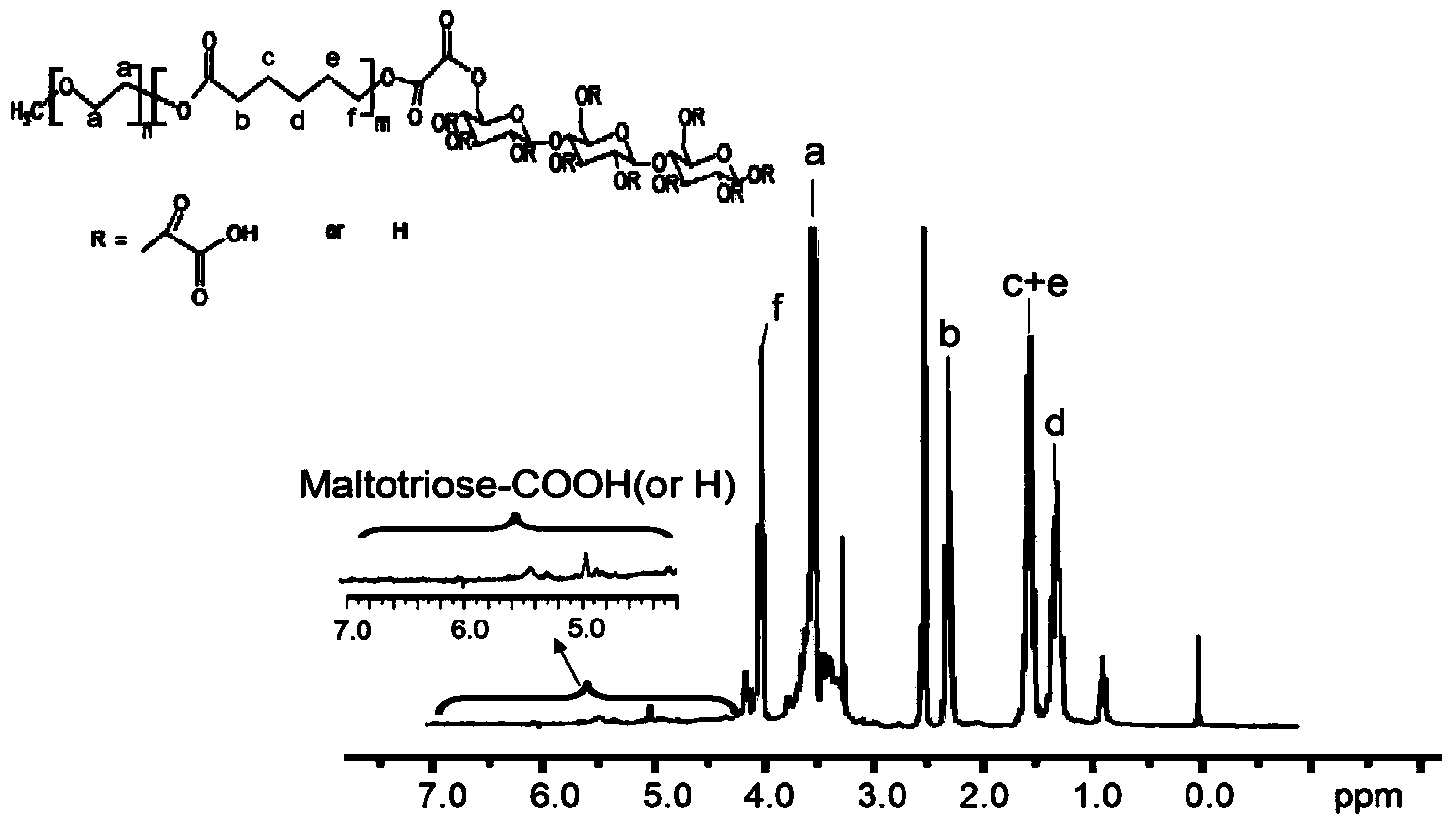Preparation method of nano-particles
A nanoparticle and solution technology, applied in the fields of block polymer and its synthesis, and nanoparticle preparation, can solve the problems of affecting the adhesion of polyplex particles to diseased cells and poor targeting effect, so as to improve the circulation efficiency in the body and improve the targeting effect. effect of effect
- Summary
- Abstract
- Description
- Claims
- Application Information
AI Technical Summary
Problems solved by technology
Method used
Image
Examples
Embodiment 1
[0040] Embodiment 1 The synthetic method of block polymer PEG-PCL-maltotriose-COOH
[0041] The synthetic route of block polymer PEG-PCL-maltotriose-COOH is as follows figure 1 shown. The whole reaction is carried out in an anhydrous and oxygen-free environment. Take a certain amount of PEG, polycaprolactone, and stannous octoate into a three-necked bottle, add fresh anhydrous toluene, and stir and react at 120°C for 24 hours. After completion, add diethyl ether to precipitate, then add dichloromethane to dissolve, and then diethyl ether to precipitate, repeat three times to obtain PEG-PCL block polymer.
[0042] Then PEG-PCL was dissolved in methylene chloride, excessive oxalyl chloride was added in the reaction flask, and the PEG-PCL solution was added dropwise in the reaction flask under the condition of anhydrous and oxygen-free ice bath, and returned to Stir at room temperature, remove the remaining oxalyl chloride under reduced pressure after 12 hours, then add dichlor...
Embodiment 2
[0045] Example 2 Preparation of Nanoparticles
[0046] Take a certain amount of polycationic polymer (take PEI as an example) and plasmid DNA, because of the investigation of nanoparticle structure and charge shielding, so the mass ratio of 1:5 (pDNA:PEI) is used to prepare polyplexes samples, and then add block height Molecules, fully compounded. See specific steps Figure 4 , 5 .
Embodiment 3
[0047] Example 3 Characterization of Nanoparticles
[0048] Nanoparticles prepared according to the above preparation method were characterized by fluorescence colocalization. The specific method was as follows: PEI and FITC were covalently bonded, and the hydrophobic PCL block of the block polymer was labeled with nile red at the same time. The prepared fluorescent particles were immobilized in PVA hydrogel and cross-linked and solidified through repeated "freezing-room temperature" cycles to limit the two-dimensional movement of the particles on the horizontal plane. Observation see Figure 6 , red (nile red) and green (FITC) appear and coincide at the same position, verifying the formation of nanoparticles.
PUM
 Login to View More
Login to View More Abstract
Description
Claims
Application Information
 Login to View More
Login to View More - R&D
- Intellectual Property
- Life Sciences
- Materials
- Tech Scout
- Unparalleled Data Quality
- Higher Quality Content
- 60% Fewer Hallucinations
Browse by: Latest US Patents, China's latest patents, Technical Efficacy Thesaurus, Application Domain, Technology Topic, Popular Technical Reports.
© 2025 PatSnap. All rights reserved.Legal|Privacy policy|Modern Slavery Act Transparency Statement|Sitemap|About US| Contact US: help@patsnap.com



